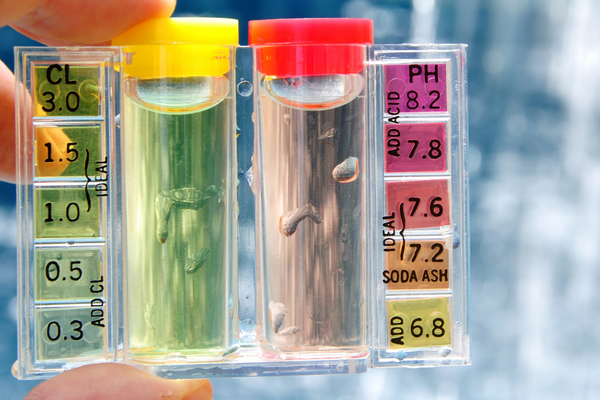
How Do I Test My Water Quality?
Do you know how to test water quality? If not, you're not alone! Many people don't know how to test their water, or why they should even bother. In this blog post, Oak Plumbing will answer some of the most common questions about water quality testing: what are the benefits, what are the different types of tests available, and how do you go about performing them? We'll also provide some tips on what to do if you have low-quality water for your plumbing system.
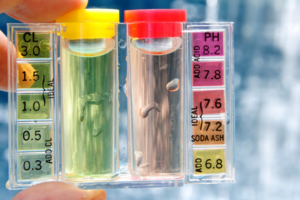
Why should I test my water quality?
Water quality can have a big impact on your health. That's why it's important to test your water regularly, especially if you are using well water. Testing can help you identify any problems with your water so that you can take steps to fix them.
What are the different types of water quality tests?
There are many different types of water quality tests available. Some common tests include:
- pH test: This measures the acidity or alkalinity of your water.
- Chlorine test: This measures the amount of chlorine in your water.
- Hardness test: This measures the amount of minerals in your water.
- Lead test: This measures the amount of lead in your water.
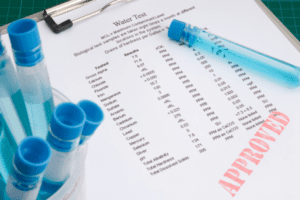
How do I test my water quality?
You can purchase water quality testing kits at most hardware stores. Follow the instructions included with the kit to collect a water sample and then test it. If you have concerns about your water quality, you can also contact your local water utility or a water testing laboratory.
Understand what you are testing for
The water quality tests that you can perform at home will measure different things. Before you test your water, it is important to understand what you are testing for and why.
- Acidity or Alkalinity: The pH of water is a measure of its acidity or alkalinity. Water with a high pH (above 8.5) is considered basic, while water with a low pH (below 6.5) is considered acidic. Most water quality tests will not measure the pH of your water. However, if you are concerned about the acidity or alkalinity of your water, you can purchase a pH testing kit at most hardware stores.
- Hardness: Hard water is water that contains dissolved minerals, such as calcium and magnesium. Hard water is not a health concern, but it can be a nuisance because it can leave mineral deposits on fixtures and cause soap to form scum. You can test the hardness of your water with a water hardness testing kit, which is available at most hardware stores.
- Total Dissolved Solids (TDS): TDS is a measure of the dissolved minerals, salts, and other small particles in water. High levels of TDS can make water taste salty or bitter and can also be a sign of water pollution. You can test for TDS with a TDS meter, which is available at most hardware stores.
- Coliform bacteria: Coliform bacteria are a group of bacteria that includes pathogens (disease-causing organisms). While most coliform bacteria are not harmful, their presence in water can indicate that harmful pathogens may be present. You can test for coliform bacteria with a water quality testing kit, which is available at most hardware stores.
- Radon: Radon is a gas that can be found in water. It is invisible and odorless, but it can be harmful to your health if you are exposed to high levels of it. You can test for radon with a water quality testing kit.
- Metals: Metals, such as lead and copper, can be found in water. They can be harmful to your health if you are exposed to them. You can test for metals with a water quality testing kit.
- Corrosion: Corrosion is the process of water breaking down metal pipes. It can cause your water to have a bad taste or smell. You can test for corrosion with a water quality testing kit.
- Detergents: Detergents can be found in water. They can be harmful to your health if you are exposed to them. You can test for detergents with a water quality testing kit.
- Volatile organic compounds: Volatile organic compounds (VOCs) can be found in water. They can be harmful to your health if you are exposed to them. You can test for VOCs with a water quality testing kit.
- Pesticides: Pesticides can be found in water. They can be harmful to your health if you are exposed to them. You can test for pesticides with a water quality testing kit.
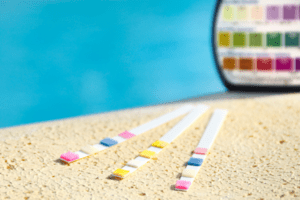
Should I have my water tested?
Testing private water supplies
Testing private water supplies is important for many reasons. Water quality can change over time, and even the best water source can become contaminated. If your water supply is private, such as a well, then you are responsible for ensuring that your water is fresh and clean. This fact means that water quality tests for private water supplies are crucial to your health and well-being.
Testing for lead
If you have an older home with lead pipes, or if you use water from a private well, your water may be contaminated with lead. Lead is a metal that can cause serious health problems if it is ingested, and it is particularly harmful to young children and pregnant women. Lead exposure can cause developmental delays, learning difficulties, and behavioral problems in children. In pregnant women, lead exposure can cause miscarriage, premature birth, and low birth weight. If you are concerned about lead in your water, you can have your water tested by a certified laboratory. You can also contact your local health department for information about water quality testing in your area.
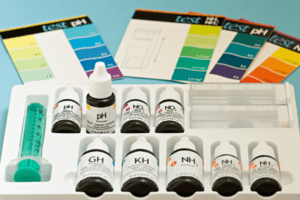
Considering a home water treatment unit
If you are considering installing a home water treatment unit, you should test your water first. The results of your water quality tests will tell you the kind of filter that you need to clean your water. This factor is important because not all types of filters remove all types of impurities. Only by testing your water will you know which type of home water treatment unit is right for you.
How often should I test?
Test when someone in the household is pregnant
As we mentioned, lead in the water supply can have serious negative effects on pregnant women and their children. Test water quality when someone in the household is pregnant, and then again after the baby is born. This test will ensure that your water does not pose a threat to the developing child.
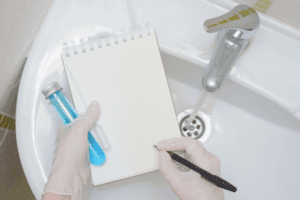
Test when you have a new baby in the house
Babies are even more susceptible to water-borne impurities than pregnant women. Test water quality when you have a new baby in the house, and then again every few months until the baby is a year old.
Test when you notice odd tastes, odors, or stains
If your water suddenly starts to taste funny, smell bad, or look strange, test it immediately. These could be signs of water-borne impurities that can make you and your family sick.
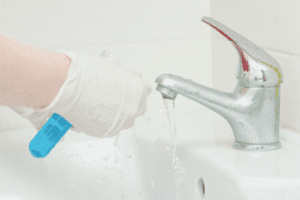
Test if there is an unexplained illness in the household
If someone in the house is sick, test the water quality. This will help you rule out water-borne illness as the cause of the sickness.
Test when there has been a chemical or fuel leak near your water supply
If there has been a chemical or fuel leak near your water supply, it's important to test your water quality. Chemicals and fuels can contaminate water, making it unsafe to drink.
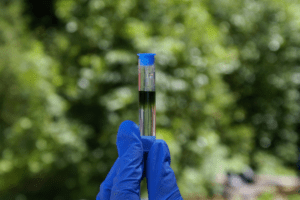
Test regularly
Even if you don't have any reason to suspect that there are impurities in your water, it's a good idea to test it regularly. This will help you identify potential problems early on before they have a chance to make you and your family sick.
When to test your water
- Conditions: Gastro-intestinal illness in the household
- Test: Coliform bacteria
- Conditions: Lead in household plumbing
- Test: pH, lead, copper
- Conditions: Radon present in interior air or heavy in the region
- Test: Radon
- Conditions: Soap that doesn't lather and leaves behind a residue
- Test: Hardness
- Conditions: Water softener needed
- Test: Manganese, iron
- Conditions: Stained laundry and plumbing fixtures
- Test: Iron, copper, manganese
- Conditions: Bad smell or taste
- Test: Hydrogen sulfide, corrosion, metals
- Conditions: Water is cloudy, frothy, or colored
- Test: Color, detergents
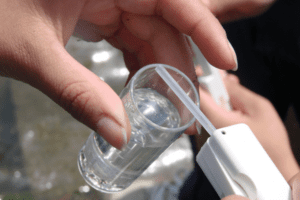
- Conditions: Corrosion of pipes and plumbing
- Test: Corrosion, pH, lead
- Conditions: Rapid wear and tear on water treatment equipment
- Test: pH, corrosion
- Conditions: Heavy agricultural activity nearby
- Test: Nitrate, pesticides, coliform bacteria
- Conditions: Mining operations nearby
- Test: Metals, pH, corrosion
- Conditions: Gas drilling nearby
- Test: Chloride, sodium, barium, strontium
- Conditions: Smell of gas or fuel oil near gas station or subterranean fuel tanks
- Test: Volatile organic compounds
- Conditions: Dump, junkyard, landfill, factory, or dry-cleaning operation nearby
- Test: Volatile organic compounds, total dissolved solids, pH, sulfate, chloride, metals
- Conditions: Salty taste and seawater or a salted road nearby
- Test: Chloride, total dissolved solids, sodium
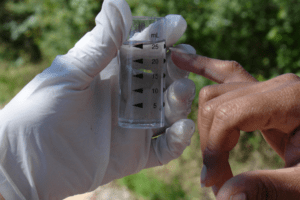
What do you do if you have poor-quality water? Contact Oak Plumbing for a water filter!
We established Oak Plumbing to bring masterful plumbing back into our community. Our highest values are providing sterling customer service and keeping your family safe. That is why we only employ licensed and background-checked experts. Between our professional employees and our commitment to our customers, there's a very good reason why most of our customers give us five-star reviews. Become one of them and come on down to Oak Plumbing now!

